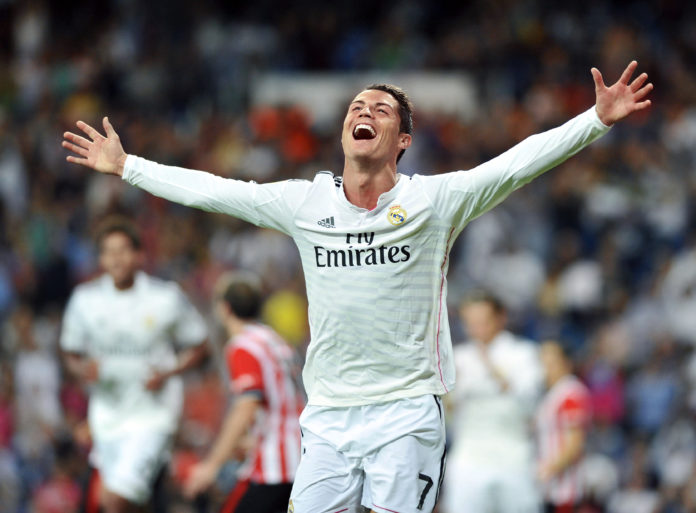Najm Al-Din explains how the modern-day idolisation of footballing celebrities like Cristiano Ronaldo and Lionel Messi is tantamount to Godly worship.
At the height of Beatlemania, John Lennon described the revolutionary pop group as having “more influence on kids and things than anything else, including Jesus.” His prescient comments on the omnipresence of celebrity culture have stood the test of time, embodied through two examples of modern day idolatry: Cristiano Ronaldo and Lionel Messi.
Both are filling a spiritual void in a civilisation which desperately yearns a higher calling. There is no denying the degree to which millions attach existential meaning, identity and purpose when debating the merits of each footballing superstar. The fluctuating emotions generated by their performance over 90 minutes and the feverish anticipation with which we await their fate at the Ballon d’Or is not merely a token of unprecedented fandom. It’s symptomatic of a condition which many psychologists refer to as Celebrity Worship Syndrome (CWS), which can range from casual stargazing to borderline pathological. If we’re not dissecting their trophy cabinets, lining our bedroom walls with their posters, swooning over their images, or marvelling over their most recent exhibition of skill, we still belong to a community enslaved by their stardom.
So why have we bestowed them such majesty? Why do their accolades and achievements occupy so much of our energies? Why are we so enthralled by their success and absorbed by their accomplishments?
Devoid of the Divine
The unhealthy interest in the lives of the rich and famous is an enduring postmodern illness, generated by our indifference to the divine. Underlying this obsession with celebrities is the human capacity for ingratitude to God. Yes, the thriving industry and profit potential behind the craving for celebrity is consumer capitalism at its worst but apart from the fact that celebrity sells, the spiritual dimension in all this is unmistakable. It masks the disturbing reality of discontented souls trying to lift themselves from obscurity by seeking solace in illusory relationships.
In this light, Ronaldo and Messi, for all their sporting brilliance, can also be viewed as modern manifestations of graven images and golden calves, which the Israelites invoked during Moses’ sojourn in Sinai. Their relentless reproduction through social media, intrusive photojournalism, and the general digital proximity contributes to not only maintaining our facile curiosity but more significantly, perpetuating an imaginary construction in our psyches like the cult fetishism of old.
Subscribe to our newsletter and stay updated on the latest news and updates from around the Muslim world!
Only this time, there’s a modern twist. Whereas the Abrahamic faiths forbid servitude to others beside God, today’s devotees don’t deify celebrities for redemptive purposes. Rather, they see in them a projection of an idealised self which ultimately functions as an empty seduction.
Celebrity worship
For the devout, a parallel between the Abrahamic narrative and this new age polytheism can be found in occasions like El CLÁSICO. Far from being an ordinary sporting spectacle, it is a modern chronicle of two mortal athletes whose ability to eclipse each other serves as a hook on which the hopes and aspirations of millions are suspended.
The Santiago Bernabeu and Camp Nou generate the reverential potential of a Mount Olympus or modern-day Roman coliseum, with Ronaldo and Messi taking centre-stage as the warring Gladiators. We are the adulating spectators, lionising their every move and embellishing their attributes, waiting to crown one as a sovereign.
For the average entertainment junkie, there’s nothing insidious about the cult of celebrity- it’s just part and parcel of their weekly fix. For others, the tendency is more compulsive as they’re longing for a community by fuelling their desire for fantasy, despite the satiation being short-lived. At times, it resembles quasi-worship which is a heavily-marketed ideal in an age where sacrilege trumps spirituality and where secularism has dispensed with traditional faith structures.
Evolutionary biologists argue celebrity worship is the prehistoric equivalent of praising skilled hunters and a natural function of our survival instinct, seeing as non-human primates would emulate alpha males. But I can’t identify any adaptive benefits in glorifying flawed beings whose glamour has been contrived by the publicity machine. If anything, we only nurture this disorder at our psychological expense, given the correlation between CWS and poor mental health as numerous studies indicate.
Moreover, we pervert our natural disposition to revere God by substituting the divine and placing our convictions elsewhere, seeing as we’re living in an age of floating spirituality and contested religious space, where the choice between transcendent and immanent forms of worship competes for our allegiance.
While Ronaldo and Messi are arguably two of the finest players of their generation, diehard supporters fail to appreciate their talents in light of the vast potential possible through God’s grace. Refusing to acknowledge The Almighty as the reason for their excellence reflects the very depths of our spiritual regression and such starry-eyed infatuation blinds us to the eventuality that both these pantheons of greatness will invariably disappoint.
But we are enamoured by these fleeting pleasures, fawning at the feet of fame, and appearing to be every bit as vacuous as those whose magnetism we find hard to overcome. While religious traditions are replete with warnings against excessive human adulation, we fall short of applying those reflections to our reality, endowing our idols with a mystique and our self with a dysfunction in the process. Unless we can probe into the inner recesses of the heart to expose the hidden idolatries and pseudo-relationships which appear to be defining an entire generation, Ronaldo and Messi will continue to hold us captive.
May Allah open our eyes to the functional equivalence between popular culture and religion and may he save us from this implicit God-like worship of mere mortals.


















